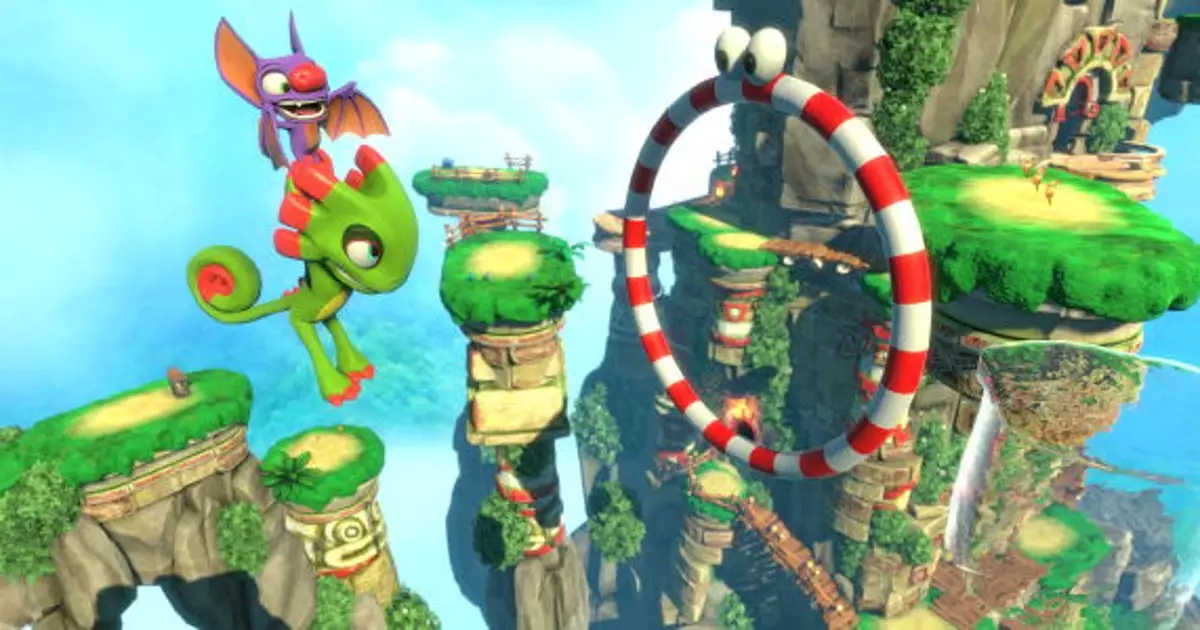The recent announcement from Playtonic, the developers behind the beloved Yooka-Laylee series, of laying off staff amid what they describe as a transformative period in the gaming industry raises critical questions about the evolving landscape of game development. The failure to specify what constitutes these “profound changes” seems indicative of broader systemic issues facing not just Playtonic but many studios in the wake of fluctuating market dynamics. Is it a matter of escalating production costs, the growing dominance of service-oriented titles, or a waning interest in nostalgic platformers that were once the hallmark of developers like Playtonic?
When examining these layoffs, it’s important to look beyond the individual circumstances of this studio or its dedicated team members. The broader concerns around affordability and sustainability loom large as we progress into an era where gaming is not just entertainment but a business rife with complexities. In essence, the industry’s transition from traditional single-player experiences to multiplayer or continuous content models may be leaving many studios grappling with how to reinvent themselves in an increasingly competitive market.
Impact on Talent and Creativity
A striking aspect of Playtonic’s layoff announcement is the heartfelt acknowledgment of the talent and contribution of those affected. The sentiment expressed in their social media statement mirrors a growing recognition that the industry’s challenges are not only economic but also deeply human. Mass layoffs invoke a sense of loss that transcends the corporate sphere; they impact the very creative fabric that fuels game development. Every artist, designer, and writer who leaves represents potential future projects and innovative ideas that may never come to fruition.
Moreover, this raises an essential question about talent retention in the gaming industry. As Anni Valkama, Playtonic’s brand manager, emphasizes, these individuals are some of the best in their fields. By providing them with a platform to connect with potential employers, she not only aims to support departing staff but also highlights a need for studios to recognize and cultivate talent more effectively. How can companies better prepare themselves for unforeseen changes while still nurturing the creativity that drives the industry forward?
Reimagining the Game Development Model
The situation at Playtonic underscores a compelling need for innovation in the game development model itself. Historically, studios like Playtonic have centered their efforts on creating singular, nostalgic experiences, yet the market’s pivot toward service-oriented games suggests a growing disconnect between developer vision and consumer preference. This presents an opportunity for studios to rethink their product offerings and business strategies.
Perhaps Playtonic should explore a hybrid model that blends the charm of the classic platformer gameplay with the ongoing engagement found in today’s successful titles. Creating a game that encourages community interaction or continual updates could not only rejuvenate their brand but also help them adapt to the shifting interests of gamers. This approach could empower smaller studios to carve out unique niches while remaining financially viable in a world increasingly dominated by large publishers.
Long-term Industry Shifts and Considerations
The layoffs at Playtonic are not just an isolated case; they are emblematic of deeper trends unfolding in the gaming industry. The surge in game popularity during the pandemic period followed by a subsequent decline in engagement signifies a fundamental shift that all developers must contend with. As the pandemic-driven boom recedes, companies must consider how to maintain momentum without relying solely on external market conditions.
This is where the importance of adaptability comes into play. In a landscape where players are increasingly drawn to multiplayer and service-centric experiences, studios must not only keep their creative fires alive but also remain agile amidst changing consumer demands. By recognizing and responding to these shifts, developers can position themselves favorably for future success.
As Playtonic navigates this challenging situation, the broader implications for the industry cannot be overlooked. Future game development will require a delicate balance between innovative gameplay, sustainable business practices, and a supportive community for talent retention. The question now remains: how will Playtonic and similar studios harness the challenges before them to create enriching, long-lasting gameplay experiences?

